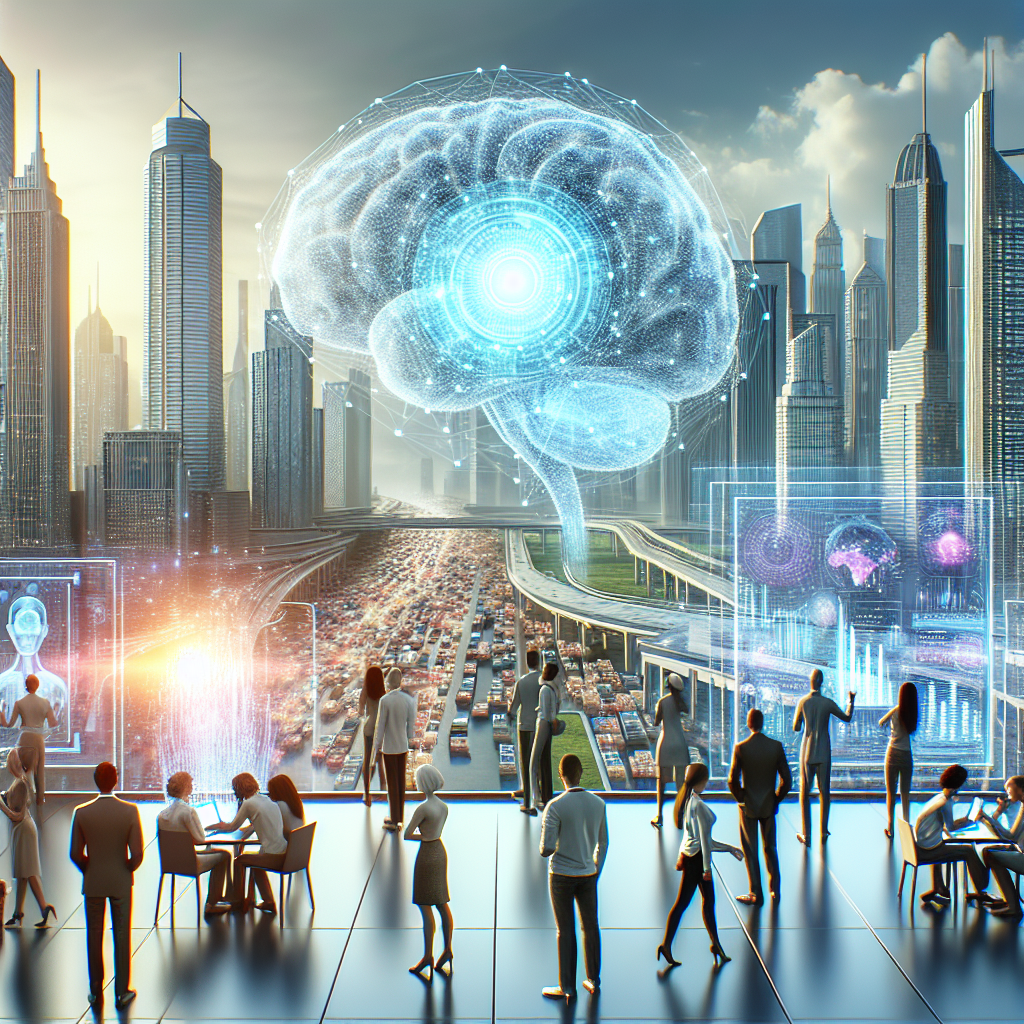The Impact of AGI on Society: How Will It Change Our World?
Artificial General Intelligence (AGI) is a technology that has the potential to revolutionize the way we live and work. AGI refers to machines that have the ability to perform any intellectual task that a human can do. This includes tasks such as reasoning, problem-solving, learning, and understanding natural language.
As AGI technology continues to advance, it raises important questions about how it will impact society. Will it create new opportunities for innovation and economic growth, or will it lead to widespread job displacement and social unrest? In this article, we will explore the potential impacts of AGI on society and discuss how it may change our world in the coming years.
1. Economic Impact
One of the most significant impacts of AGI on society will be its effect on the economy. AGI has the potential to automate a wide range of tasks that are currently performed by humans, leading to increased productivity and efficiency in many industries. This could result in lower costs for goods and services, as well as the creation of new industries and job opportunities.
However, the widespread adoption of AGI also has the potential to lead to widespread job displacement. As machines become increasingly capable of performing tasks that were previously done by humans, many jobs may become obsolete. This could lead to increased unemployment and income inequality, as those with the skills to work with AGI technology may benefit while others are left behind.
To address these challenges, policymakers will need to consider strategies for retraining workers whose jobs are at risk of being automated. They may also need to explore policies such as universal basic income to ensure that all members of society have access to the resources they need to thrive in a world where AGI plays a central role in the economy.
2. Social Impact
The adoption of AGI technology will also have significant social impacts. For example, as machines become increasingly capable of performing complex tasks, they may begin to challenge human decision-making in areas such as healthcare, finance, and criminal justice. This raises important ethical questions about how we should use AGI technology and what role humans should play in guiding its development.
Additionally, the widespread adoption of AGI technology may lead to new forms of social inequality. Those who have access to AGI technology and the skills to work with it may benefit disproportionately, while others may be left behind. This could exacerbate existing inequalities and create new challenges for policymakers seeking to promote social justice and equity.
To address these challenges, it will be important for policymakers, technologists, and society as a whole to engage in conversations about the ethical and social implications of AGI technology. This may involve developing new frameworks for regulating the use of AGI, as well as promoting transparency and accountability in the development and deployment of these technologies.
3. Environmental Impact
AGI technology also has the potential to have a significant impact on the environment. For example, the widespread adoption of AGI in industries such as agriculture and transportation could lead to increased efficiency and reduced resource consumption. This could help to address pressing environmental challenges such as climate change and resource depletion.
However, the adoption of AGI technology may also lead to new environmental challenges. For example, the increasing use of energy-intensive computing systems to power AGI algorithms could lead to increased energy consumption and carbon emissions. Additionally, the widespread adoption of AGI technology may lead to increased consumption and waste as goods and services become cheaper and more readily available.
To address these challenges, it will be important for policymakers and technologists to consider the environmental impacts of AGI technology and work to develop strategies for promoting sustainability and reducing the environmental footprint of these technologies.
FAQs
Q: Will AGI replace human workers?
A: AGI has the potential to automate many tasks that are currently performed by humans, leading to job displacement in some industries. However, it is unlikely that AGI will completely replace human workers, as there are many tasks that require human creativity, empathy, and intuition.
Q: How can society prepare for the impact of AGI?
A: Society can prepare for the impact of AGI by investing in education and training programs that prepare workers for jobs in a rapidly changing economy. Policymakers can also explore strategies such as universal basic income to ensure that all members of society have access to the resources they need to thrive in a world where AGI plays a central role in the economy.
Q: What are the ethical implications of AGI?
A: The adoption of AGI technology raises important ethical questions about how we should use these technologies and what role humans should play in guiding their development. It will be important for policymakers, technologists, and society as a whole to engage in conversations about the ethical and social implications of AGI technology and work to develop frameworks for regulating its use.
In conclusion, AGI technology has the potential to revolutionize the way we live and work in the coming years. While it offers many opportunities for innovation and economic growth, it also raises important questions about its impact on society. By engaging in conversations about the ethical, social, and environmental implications of AGI technology, we can work to ensure that these technologies are used in ways that benefit all members of society.

